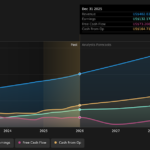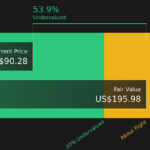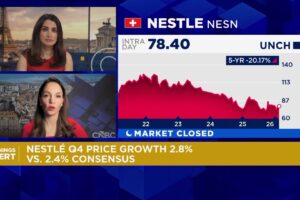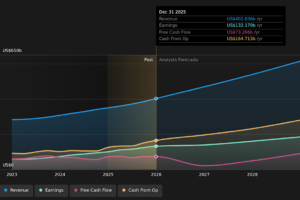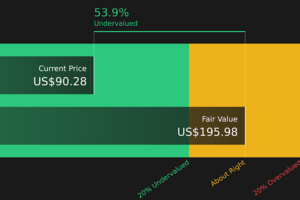
(Bloomberg) — Samsung Electronics Co. missed analyst estimates for the fourth quarter and warned profitability will likely decline this quarter, citing weakness in its memory chip business and challenges with currency fluctuations.
South Korea’s biggest company reported net income in the three months ended December of 6.45 trillion won ($5.84 billion), missing the 7.3 trillion won average of estimates compiled by Bloomberg. Shares fell as much as 2.8% in Seoul on Thursday.
Samsung, the world’s largest maker of memory chips and displays, struck a cautious tone that stood in contrast to that of many technology companies benefiting during the coronavirus lockdowns. Just hours earlier, Apple Inc. and Facebook Inc. reported financial results that handily exceed estimates.
“In the first quarter, we expect overall profitability to decline due to relative weakness in the memory and display businesses,” said Ben Suh, executive vice president of investor relations, during a call with investors. In the memory business, Samsung’s most important profit engine, “results are likely to weaken due to currency effects and continued costs associated with new fab ramp up.”
Operating profit for the semiconductor unit was 3.85 trillion won in the fourth quarter, short of the 4.62 trillion estimate from analysts. The company said it expects a recovery in the business in the first half.
In the smartphone business, Samsung struggled in the holiday period as Apple introduced its first 5G-capable iPhones and Chinese rivals put up fierce competition. The Cupertino, Calif.-based company took over the No. 1 position in the fourth quarter, ahead of Samsung and China’s Xiaomi Corp., market research firms said on Thursday.
With a lot of good devices on the market, “there is only so much that Samsung can grab out of it,” said Kiranjeet Kaur, research manager at IDC.
Investors had anticipated Samsung could increase its dividend payout substantially, in part because the founding Lee family faces an enormous inheritance tax bill. Instead, the company said it would continue to return 50% of free cash flow to shareholders between 2021 and 2023, although its annual dividend payout will increase slightly to 9.8 trillion won.
The results come just days after Samsung’s de-facto leader, billionaire heir Jay Y. Lee, was sent back to prison on bribery charges. Although professional managers lead the company’s operating units, Lee has played a central role in major strategic decisions.
The company signaled it will continue to press ahead with critical deals and investments. Samsung will use its capital to expand the capacity of its foundry business, which fabricates chips for clients like Nvidia Corp., to meet demand and overcome current supply shortages. It will also invest in facility expansions and “meaningful” acquisitions, the company said.
“For the last few years, we have been evaluating possible M&A opportunities very carefully and have made significant progress in terms of preparation,” Choi Yoon-ho, chief financial officer of Samsung, said during the earnings call. “Although it is difficult to pinpoint a specific timing due to uncertainties in the internal and external business environment … we are optimistic of carrying out meaningful M&A activities during this term.”
Read more: Samsung Surges to New High on Strong Memory Market Outlook
Analysts including Yungsan Choi of Ebest Investment & Securities have been anticipating a long-awaited rebound in memory chip prices due to demand for servers and more powerful 5G smartphones. Component supplier Murata Manufacturing Co. and chipmaker MediaTek Inc. both anticipate more than half a billion 5G handsets to be shipped this year.
Chipmakers Intel Corp. and Micron Technology Inc. gave a bullish forecast for the first quarter of this year on continued demand for computers and phones that enable working and studying from home. Taiwan Semiconductor Manufacturing Co. is planning another record-breaking year of investment with as much as $28 billion set aside to expand and improve its production capacity at a time of silicon supply shortages affecting everyone from global automakers to mobile tech giants like Apple and Qualcomm Inc.
Samsung’s contract chip manufacturing is expected to expand with the addition of Intel as a customer. The two companies have discussed development and production of Intel’s mainboard chipsets over the last two years and Samsung will produce the chipset at its Austin, Texas plant starting from this quarter, Meritz Securities said in a note.
Samsung Is Said to Mull $10 Billion Texas Chipmaking Plant
The existing Austin fab is capable of operating on a 14-nanometer process. With rising expectations of growth in the foundry market, Samsung is considering building a cutting-edge logic chipmaking plant in the region that would be capable of fabricating chips as advanced as 3nm in the future, Bloomberg News reported earlier.
“Regarding investments including building a fab in the U.S., we haven’t made a decision yet,” said Shawn Han, senior vice president of the semiconductor business. “Due to the nature of foundry business that requires timely and efficient responses to customers’ demand, we routinely review capacity expansions. We continue to study ways to optimize operations at fabs in all regions from Giheung, Hwaseong to Austin.”
(Updates with executive comment in fourth paragraph)
For more articles like this, please visit us at bloomberg.com
Subscribe now to stay ahead with the most trusted business news source.
©2021 Bloomberg L.P.



